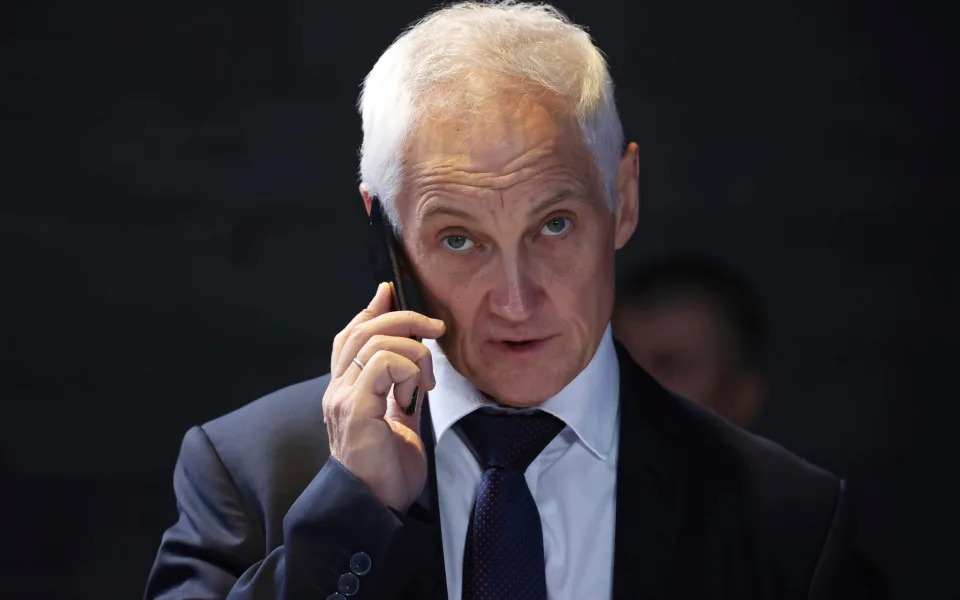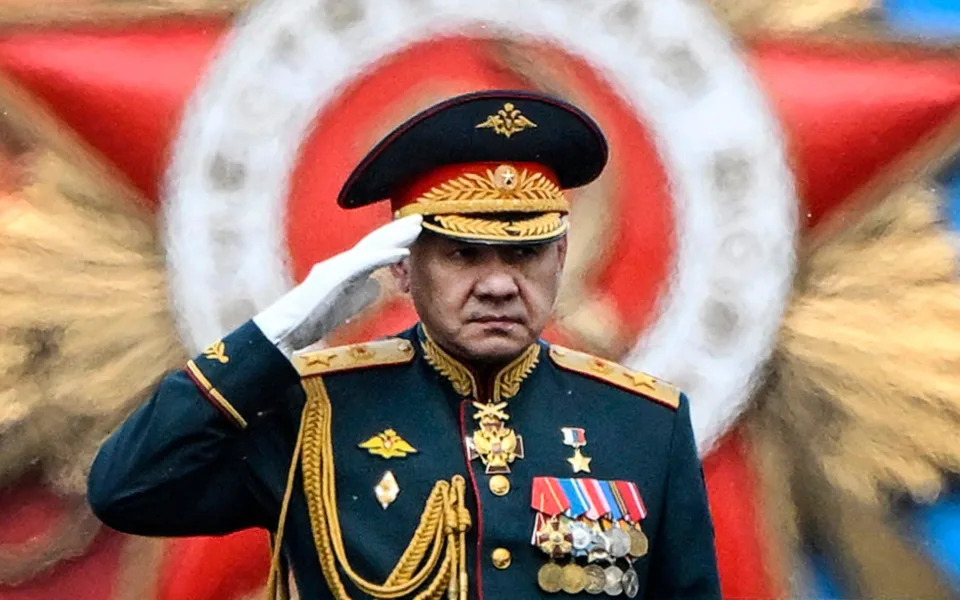
This article is more than
1 year old
At first glance, Andrei Belousov does not appear to fit the mould of a Russian defence minister.
Known for his spreadsheet wizardry and grasp of Keynesian economics, he is more at home with columns of data than of tanks.
But Vladimir Putin has chosen Mr Belousov, described as the Kremlin’s most gifted and most illiberal economist, and given him a clear mission – to win in Ukraine and prepare Russia for a long-term conflict against Nato.
These are projects Putin regards as central to his legacy as Russia’s leader and he wanted a bureaucrat, not a military man, for the job.

Sergei Shoigu had been criticised for his inability to overcome bureaucratic inertia undermining Moscow’s war effort.
Mr Belousov, a 65-year-old Putin loyalist, is known for his sharp analytical mind and head for figures.
Putin has forced Russia’s economy and society on to a war footing. War has been normalised in the country. Appointing an economist as defence minister highlights this mental shift.
With Putin feeling confident about his armies’ performance on the battlefield in Ukraine, he has been able to make overdue changes to his top team.

Belousov replaces Sergei Shoigu as defence minister. Shoigu was also a civilian, but after his appointment in 2012, he took on the rank of general and strutted around in various uniforms with rows of medals stuck to his chest.
Expect Belousov to take a very different, numbers-driven approach to Shoigu.
Recently Belousov has taken charge of drone projects, pushing through plans to build more of the key weapons and train more operators. He also reportedly has a good personal relationship with Putin.
Gen Shoigu has been shunted sideways to become the secretary of Russia’s powerful National Security Council, pushing out Nikolai Patrushev, the 72-year-old hawk who advises more conflict with Nato.
And there is the elephant in the room, the sullen General Valery Gerasimov, who is head of the Russian military. He survived the reshuffle, despite all the criticism aimed at him over the Russian military’s performance in Ukraine. Just like Shoigu, he must now be wondering how long he has left on the job.

Belousov has glided silently to the top. From 2012 he was a minister for economic development, then an economics adviser to Putin and then a deputy prime minister. Before joining the Kremlin’s team, Belousov worked in Russia’s trade ministry as an analyst and then in the prime minister’s office as a director of finances. This CV may sound boring, but this is just the sort of experience that Putin is looking for.
The war in Ukraine has shifted to a war of attrition that Putin feels that he can win. He has signed weapons supply deals with North Korea and Iran, and converted civilian industry to arms manufacturing, and also pushed the mobilisation of hundreds of thousands of men and convicts.
This has given Russia a material advantage in Ukraine and allowed it to soak up a casualty rate of nearly 1,000 men per day.
In other words, Putin believes that quantity over quality will triumph in Ukraine and, importantly, will challenge Nato more widely, a conflict he has prepared his armies for more intensely since his 2022 invasion of Ukraine.
Belousov is Putin’s numbers man and the grey-suited bureaucrat is now preparing Russia for conflict with Nato.